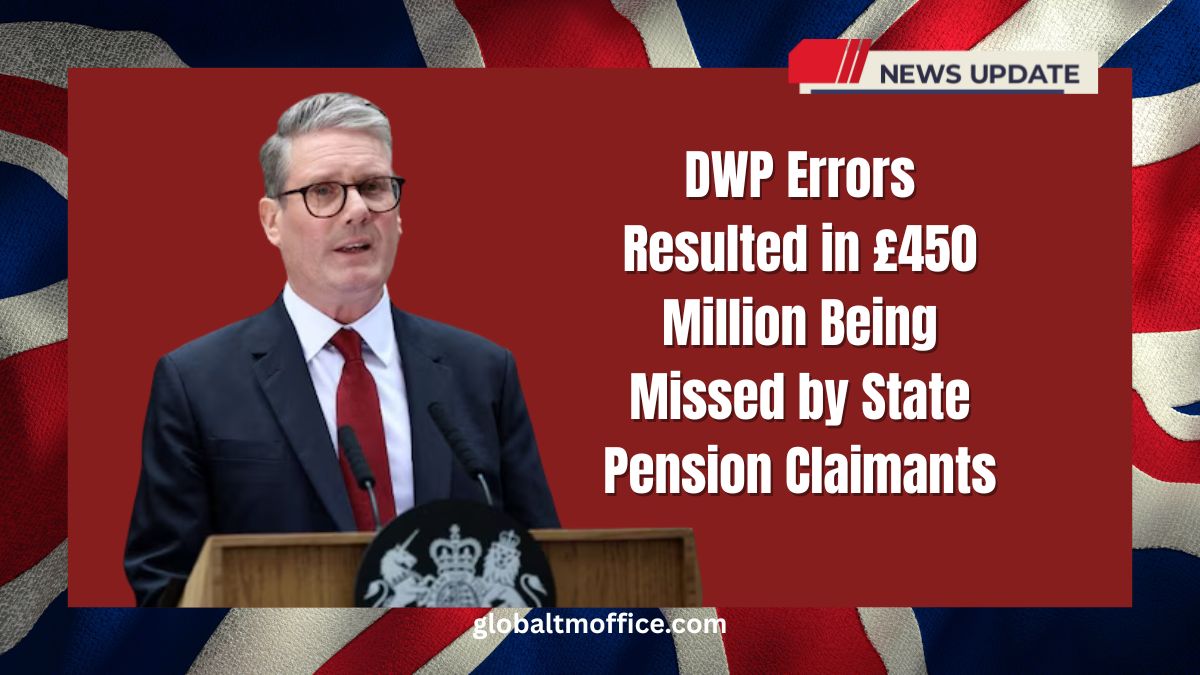Recent data has revealed a significant shortfall in state pension payments, with pensioners collectively missing out on a staggering £450 million in the last tax year due to errors within the benefits office.
This issue stems from a variety of factors, including inaccuracies in National Insurance records and outdated information related to Home Responsibilities Protection (HRP) credits, which were designed to safeguard pension rights for those with caring responsibilities.
Key Causes of State Pension Underpayments
National Insurance Records and HRP Credit Omissions
The Department for Work and Pensions (DWP) has identified National Insurance record inaccuracies as the main reason for underpayments.
HRP credits, which were in place from 1978 to 2010, were meant to protect pension rights for individuals who were primary caregivers. However, many of these credits were not recorded, resulting in missing pension entitlements.
Other Contributing Factors to Underpayments
In addition to HRP credit omissions, other underpayment issues were caused by incomplete top-up pension elements and the failure to update records following changes in marital status.
As a result, some individuals were not provided with inherited pension rights or automatic increases tied to a spouse’s National Insurance contributions.
State Pension Overpayments
Total Overpayments and Their Causes
The DWP has also reported considerable overpayments, amounting to £190 million. Of this, £80 million was attributed to claimant mistakes, while administrative errors accounted for £110 million.
Although overpayments remain a relatively small percentage of total pension payments, the financial impact is still significant, especially when dealing with large sums of public money.
Jon Greer, head of retirement policy at Quilter, commented, “The scale of the state pension system is vast, and while the overpayment rate remains low at just 0.1%, £190 million of taxpayers’ money was incorrectly paid.”
Increase in Official Errors
Greer also noted a concerning rise in overpayments due to administrative mistakes, with official errors tripling from £20 million last year to £110 million.
The miscalculations primarily involved additional pension components, which supplement the basic state pension. These elements are often prone to errors, highlighting the challenge of managing large sums with accuracy.
Underpayments: The Bigger Issue
Despite the overpayments, underpayments remain a more significant problem.
The £450 million in underpaid state pensions includes a large proportion of women who were affected by past issues with HRP credits. These historical errors continue to disrupt the pension system, despite efforts to correct them.
The Ongoing Struggles with Legacy Issues
HRP was discontinued years ago, but its legacy issues continue to impact individuals who were caregivers during that time.
The lack of accurate record-keeping has meant that many people are still missing out on their rightful pension payments.
Pension Credit Overpayments and Fraud
Record Highs in Pension Credit Overpayments
Overpayments in the DWP’s Pension Credit benefit have reached a record 10.3% this year, costing taxpayers £610 million.
Fraud has played a major role in this surge, with nearly half of the overpayments—approximately £270 million—stemming from fraudulent claims.
Balancing Accessibility and Fraud Prevention
Greer emphasized the difficulty of balancing the need for accessibility with fraud prevention in the Pension Credit system.
The benefit, aimed at financially vulnerable pensioners, is being exploited by individuals failing to declare financial assets or by those spending extended periods abroad, which breaches the program’s eligibility requirements.
Administrative Errors in Pension Credit Payments
Despite the relatively smaller proportion of underpayments in Pension Credit, errors still accounted for £70 million, with nearly 70% of this amount resulting from administrative mistakes.
These errors predominantly involve additional amounts for severe disability, which are crucial for pensioners with the lowest incomes.
The Need for Proactive Communication and Accurate Record-Keeping
Importance of Effective Communication from the DWP and HMRC
Greer concluded by stressing the need for more proactive communication between the DWP, HMRC, and individuals with complex entitlements.
Given the importance of these benefits for pensioners in their later years, minimizing errors is crucial to ensuring that the system remains equitable and efficient.
The state pension system is plagued by a range of issues, including both underpayments and overpayments.
While overpayments remain relatively low, the significant £450 million underpayment—especially affecting vulnerable groups such as women with caring responsibilities—highlights the ongoing difficulties in ensuring accurate pension payments.
The system’s complexity demands greater attention to record-keeping and communication to prevent errors and ensure that pensioners receive the financial support they are entitled to.
FAQs
What caused the £450 million state pension underpayment?
The underpayment was mainly due to inaccuracies in National Insurance records, with specific issues surrounding the omission of Home Responsibilities Protection (HRP) credits, which were intended to safeguard pension rights for caregivers.
How much did overpayments cost taxpayers?
Overpayments totaled £190 million, with £110 million attributed to administrative errors and £80 million resulting from claimant mistakes.
What is the impact of Pension Credit overpayments?
Pension Credit overpayments have reached a record high of 10.3%, costing £610 million, with nearly half of these overpayments linked to fraud and ineligible claims.

